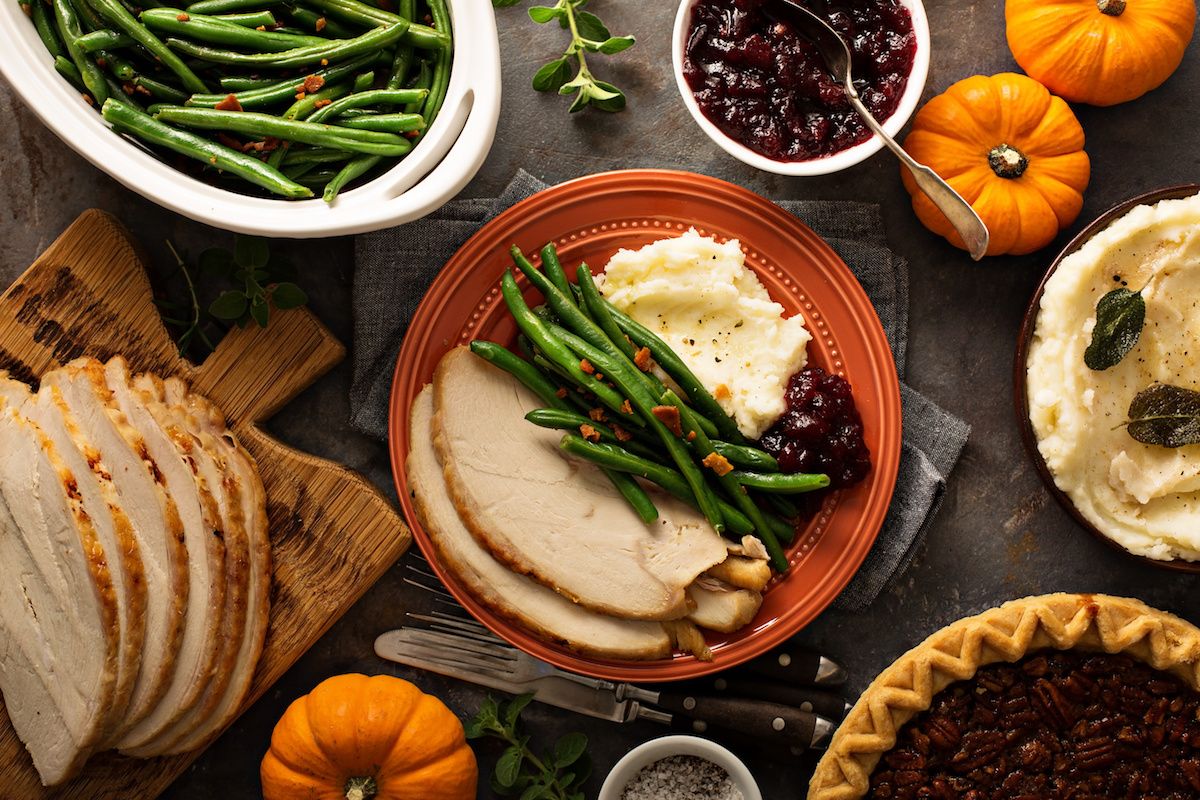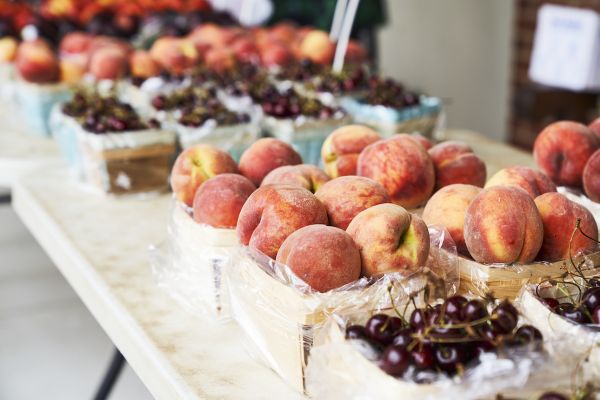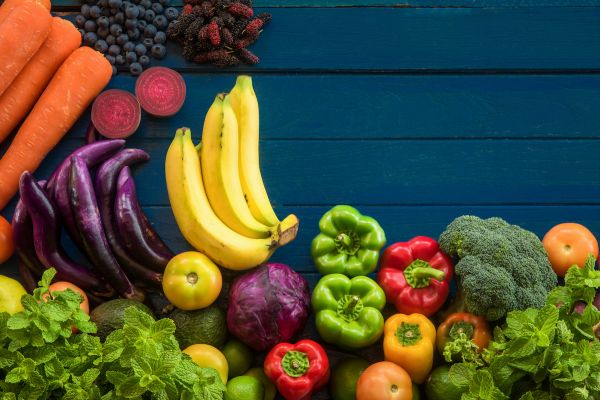The holiday season doesn't have to derail your healthy habits. You can take care of yourself and enjoy holiday dishes and sides. Check out the following tips for nourishing yourself during the upcoming holidays.
- Don’t skip meals. Whether you’re planning a cookie-baking night or a holiday dinner with your household, complete with your favorite pies, be sure to eat a balanced breakfast and/or other meals before your celebration. Don’t skip meals to “save” calories, as this often leaves you feeling hungry throughout the day and leads to overeating.
- Survey your choices. A typical Thanksgiving or holiday meal includes a lot of sides, desserts and other options. To avoid over-filling your plate, take a look at what’s available before you start scooping. Remember, if you don’t really enjoy a traditional holiday food, you don’t have to eat it!
- Put down your fork between bites. Take time to savor your meal and enjoy conversation with others. Before getting seconds, take 10 minutes to ask yourself if you’re actually still hungry and still enjoying the food.
- Stay active. With the colder temps and shorter days, it can feel difficult to incorporate movement into your routine, but try to find ways to stay active during the holiday season. After a meal, consider bundling up, going for a walk and touring outdoor holiday displays.
- Limit alcohol. For cancer prevention, it’s best not to drink alcohol. If you’re going to drink, it’s recommended that you limit your alcohol intake. Use smaller glasses for alcoholic beverages and sip water, club soda or a non-alcoholic beer or cocktail in between alcoholic drinks.
- Enjoy treats guilt-free. It’s okay to indulge in your favorite foods with your loved ones. Often holiday foods are treats that you don’t have frequently — if at all — throughout the rest of the year. Don’t feel you have to make swaps in family recipes to make them healthier, because that can leave you feeling less satisfied. Instead of changing traditional recipes, you could try adding new plant-based recipes that highlight fruits and veggies for your holiday meals. Below are examples of some seasonal produce options to add to your holiday selection.
Include winter squash
Carotenoids, which are compounds in winter squash, help support the immune system. Winter squash includes many varieties, such as butternut, acorn, spaghetti and delicata, among others. They taste great roasted and in soups and stir fries, or try this Kale, Butternut Squash and Pomegranate Salad. If you have too much squash to use at once, clean and cut it into small chunks and freeze uncooked for later use.
Pass the cranberries
Cranberries contain phytochemicals, which may help lower your cancer risk. There are many ways to use cranberries beyond the traditional cranberry sauce. Try combining them with another seasonal favorite in this Cranberry Flax Pumpkin Bread.
Choose cruciferous vegetables
Vegetables such as broccoli, cauliflower, kale and Brussels sprouts belong to the cruciferous family, which may help reduce overall cancer risk, and even lower risk for cancer recurrence in patients with early-stage bladder cancer. Try them roasted, sautéed or stir-fried for great flavor and texture, or in recipes such as this Brussels Sprout Apple Slaw with Cranberries and Walnuts.
Don't forget the fruits
Many fruits are in-season during the winter, including citrus fruits such as oranges, grapefruits and tangerines. Apples also are still in season, and their skin provides fiber and phytochemicals that may help reduce the risk of a certain type of breast cancer. Try creating a festive-looking seasonal fruit salad with winter fruit options such as pineapple, kiwi and pomegranate seeds.
Want more healthy eating tips?
Our Nutrition Department has lots of information to help you eat healthy.



